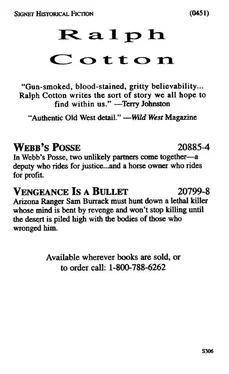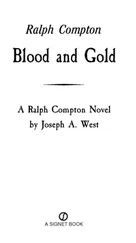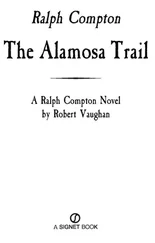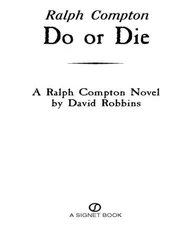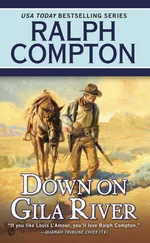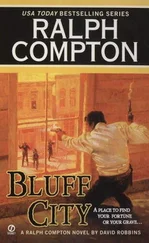Ralph Compton - Doomsday Rider
Здесь есть возможность читать онлайн «Ralph Compton - Doomsday Rider» весь текст электронной книги совершенно бесплатно (целиком полную версию без сокращений). В некоторых случаях можно слушать аудио, скачать через торрент в формате fb2 и присутствует краткое содержание. Год выпуска: 2015, Издательство: Penguin Publishing Group, Жанр: Старинная литература, на английском языке. Описание произведения, (предисловие) а так же отзывы посетителей доступны на портале библиотеки ЛибКат.
- Название:Doomsday Rider
- Автор:
- Издательство:Penguin Publishing Group
- Жанр:
- Год:2015
- ISBN:нет данных
- Рейтинг книги:5 / 5. Голосов: 1
-
Избранное:Добавить в избранное
- Отзывы:
-
Ваша оценка:
- 100
- 1
- 2
- 3
- 4
- 5
Doomsday Rider: краткое содержание, описание и аннотация
Предлагаем к чтению аннотацию, описание, краткое содержание или предисловие (зависит от того, что написал сам автор книги «Doomsday Rider»). Если вы не нашли необходимую информацию о книге — напишите в комментариях, мы постараемся отыскать её.
Doomsday Rider — читать онлайн бесплатно полную книгу (весь текст) целиком
Ниже представлен текст книги, разбитый по страницам. Система сохранения места последней прочитанной страницы, позволяет с удобством читать онлайн бесплатно книгу «Doomsday Rider», без необходимости каждый раз заново искать на чём Вы остановились. Поставьте закладку, и сможете в любой момент перейти на страницу, на которой закончили чтение.
Интервал:
Закладка:
He ran a hand through his thick, shaggy hair, trying to reach a compromise with himself.
A glass of rye, maybe. Just one. Then long enough to stand in a saloon to bring it all back and no longer.
He scrubbed a hand over the harsh stubble of his cheeks but decided a shave could wait. He also thought to trim his mustache, but that too could be put off until later. Besides, he knew there was little he could do to bring even a remote suggestion of handsomeness to his saddle-brown, hard-boned features.
Fletcher put on his hat, then tugged on his boots. He picked up his gun belts, but decided against wearing them. A belted man could be seen as a threat—or a challenge.
The short-barreled Colt he slid from the holster and stuck in the waistband of his pants, covering the gun with his mackinaw so it would not show.
He checked in his shirt pocket to make sure he had his tobacco, and then studied himself briefly in the flyspecked mirror above the washstand.
What he saw did little to cheer him, but then it seldom did.
Fletcher stepped out of his room and closed the door quietly behind him. For a brief moment he stopped outside Estelle’s room but heard no sound. The girl must be sound asleep.
He went down the stairs, ignored the lifted, quizzical eyebrow of the bored night clerk, and stepped onto the boardwalk, his spurs ringing.
There was a saloon a short distance away. Like most drinking establishments in Hays it had a false front, twice as high and twice as wide as the real single-story timber shack hiding behind it. A faded sign hanging on rusty chains proclaimed the place to be Chris Riley’s Saloon. It looked as good, or as bad, as any other, and Fletcher made his way toward it.
He opened the door and stepped inside.
The saloon was a long, low room, dimly lit by oil lamps strung along the entire length of the vee-shaped ceiling that valiantly tried to penetrate the fog of cigar and pipe smoke. A mahogany bar at least forty feet long dominated the room, the rest of the space taken up by tables and chairs.
The saloon was crowded with the usual flotsam and jetsam of the frontier. Buffalo hunters, huge and shaggy in hide coats, rubbed shoulders with ragged miners, drifted in from God knows where, both noisily rejoicing in their youth and great strength. Long-limbed cowhands in from surrounding ranches stood, one high-heeled boot hooked on the brass rail, drinking rye, telling each other lies about deserts they’d crossed, blizzards they’d known, and horses they’d ridden. Gamblers of high and low degree went about their business with careful eyes and handled the pasteboards with white, sensitive fingers.
The tables were crowded with people of both sexes, playing poker, drinking, smoking, talking all at once at the top of their voices. The women were no longer in the first flush of youth, painted faces hard and knowing, drinking vinegar and water bought for them by lustful admirers at champagne prices.
Here and there pasty young clerks in celluloid collars and grinning farm boys in ill-fitting suits were getting their first lessons in sin, the tantalizing joys of hard liquor and the soft flesh of women.
At a table set apart from the rest were five black troopers of the Tenth Cavalry, barely tolerated and for the most part ignored.
A piano player was hard at work in one corner, competing with flush-faced waiters calling, chairs shuffling, drunken men shouting, women’s voices joining in, the clash and chink of glasses and the noise of the street outside, all of it blending together in one deafening din.
All this Buck Fletcher saw, heard, and smelled with considerable joy. He managed to find a space at the bar long enough to order a rye, then took his drink to an out-of-the-way corner, already feeling the tensions of the past weeks slowly drain from him.
He held his glass in an elbow jammed into his side and built a cigarette. Then he smoked and sipped his whiskey, an interested observer of what was going on around him but carefully making himself no part of it.
Much of the crowd’s excited talk centered around the recent visit of President Grant, two distinguished senators, the Russian count and countess, and Wild Bill Hickok—and there was much speculation as to whether or not the buffalo herds had already drifted too far south into the sheltering buttes and ravines of the Bear Creek country and spoiled the hunt.
This heated conversation muted and staggered to a ragged halt when Chris Riley, a round-faced man with muttonchop whiskers, a white apron tied around his waist, stepped beside the piano and held up his hands for silence.
After he’d called out, “Ladies and gentlemen, please,” several times, all talk died away into quiet, and the man beamed and yelled so that everyone could hear him, “As you are all aware, our fair city was recently honored by the visit of President Grant, that gallant hero of the late War Between the States.”
There was some scattered applause and more than a few boos and catcalls, the war still a festering wound that refused to heal.
Nonplussed, Riley continued: “With the president were a distinguished senator, members of the Russian aristocracy, and that peerless prince of pistoleers, that paladin of the plains, the one we lesser mortals, rejoicing when a god deigns to make one of his periodic visits to Hays, have yclept Wild Bill.”
Again there was applause and a few boos and Fletcher heard a man’s voice yell, “God, my ass! Hickok ain’t much.”
Alone among a mostly good-humored crowd, this voice was unnecessarily belligerent and aggressive, gratingly out of place, and Fletcher recognized it as such. Without turning his head, his eyes sought the man who had spoken.
He was not hard to find.
Sitting at a table to Fletcher’s right was a big, wide-shouldered man, his ruggedly handsome face revealing an ominous hint of brutality around the mouth and hard blue eyes. He wore two Colts low on his thighs, as some professional gunmen were starting to do, and there was no doubt in Fletcher’s mind that the man could use them well. He knew the type. Here was a bully and a braggart who had killed before and would kill again without even giving the death of another human being a second thought.
The man beside him was cut from the same mold, a little older, with a sweeping dragoon mustache above a wide, thin-lipped mouth that was now curled in a cold smile, eyes gray, glittering in the lamplight like steel blades.
On the table in front of them was an almost empty bottle of whiskey. They had been drinking heavily and the alcohol had made both men mean and hostile, stirring the inner anger that drove them. Now, confident, combative, and eager, they were very much on the prod and looking for a fight.
Fletcher had run into men like these in the past. Clay Allison for one. An affable, pleasant enough man when sober, he was a touchy, dangerous demon in drink and best left strictly alone.
Accepting his own counsel in this matter, Fletcher rolled himself another cigarette, fading as much as he was able into the background. A man might die here tonight, shot down by the guns of the two at the table, but that was no concern of his. It was for the law to handle.
What Fletcher, from long experience, had heard, seen, and evaluated, passed unnoticed by the saloon patrons. All eyes were on Riley, who was speaking again.
“Ladies and gentlemen, I am not here to talk of Wild Bill—”
“Yeah,” the older of the two men yelled, “shut your trap about ol’ duck beak!”
A few of the people around the two gunmen laughed nervously, but the four black cavalry troopers, vulnerable in this place, were suddenly wary and alert, taking notice.
“Before,” Riley said, refusing to be intimidated, “I was so rudely interrupted, I was saying that I’m here not to speak of our former town marshal, but of our other distinguished visitors, those glittering scions of the Russian nobility, those blue bloods from the steppes”—he finished with a flourish—“Count and Countess Vorishilov.”
Читать дальшеИнтервал:
Закладка:
Похожие книги на «Doomsday Rider»
Представляем Вашему вниманию похожие книги на «Doomsday Rider» списком для выбора. Мы отобрали схожую по названию и смыслу литературу в надежде предоставить читателям больше вариантов отыскать новые, интересные, ещё непрочитанные произведения.
Обсуждение, отзывы о книге «Doomsday Rider» и просто собственные мнения читателей. Оставьте ваши комментарии, напишите, что Вы думаете о произведении, его смысле или главных героях. Укажите что конкретно понравилось, а что нет, и почему Вы так считаете.
